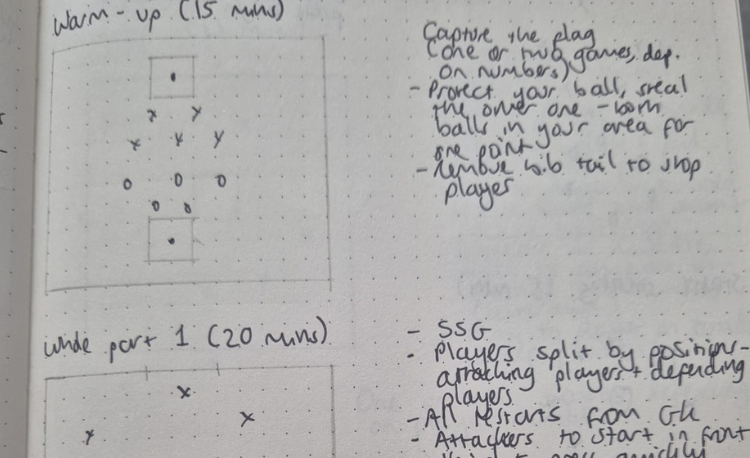5 things to do as a player leaves
Give them the best exit and then leave the door open, says Steph Fairbairn
It is a fact of soccer that players move on.
They may leave a team for a number of reasons – because they can’t commit to the dates and times of training, because there is another club more convenient to them in terms of location, or even to leave the sport all together.
As a coach, it is important to give the player leaving the best exit possible – both for them and the rest of your squad. Here are five ways to do so...
01 - Find out more about why they are leaving
Chat to the player and their parents or carers about why they want to go. If it’s for time or location reasons, there isn’t much you can do.
Similarly, if it is because they have found another passion they want to dedicate their time to, you can’t do anything about that. In fact, you should be glad they have found something they are so invested in.
If, however, they are leaving because of things going on at your club, that is a different story. Whether it’s the culture, team dynamics, coaching behaviour or something else, you should look to find out as much as possible about what has gone on that has led to the player having a negative experience.
Sometimes, a commitment to looking at these things and making improvements will allow the player to stay, other times it won’t. Either way, you need to accept the player’s decision.
What it will do, though, is improve things for other current and future players, ensuring they have as positive an experience as possible.
02 - Let the other players in your team know
Ask the player that is leaving how they would like the other players to know – do they want to tell them or would they prefer you to?
It’s likely that some of them will already know if they are close to the player who is leaving.
If it is you telling the players, be as honest as you can about the reasons for the player leaving, while keeping their confidence.
There might be some emotions from the group – perhaps shock or sadness. It’s your job to hold the space for that, and help support your players through the change.
03 - Send them off with a nice goodbye
Can you give them something to thank them for the time they have dedicated to the club? Maybe a card or a signed ball or shirt.
Even better – ask your players what they think they would like.
04 - Leave the door open
Young people may go back and forth between activities more than a few times – it’s all part of figuring out who they are and what they like doing.
Just because a player has decided soccer isn’t right for them at this point in their lives, the door should never be closed. Let them know that if they want to play again in future, the club is there.
05 - Don’t take it personally
Even if you know all of the reasons for someone leaving your team, sometimes it’s hard not to take it personally and think you could have done more..
The truth is – people leaving and changing teams is just a fact of life that we have to accept. If a player is leaving because of something that’s gone on at your club, don’t be too hard on yourself about it.
You can’t go back and change what’s happened – what you can do is commit to reviewing the situation and making positive change to benefit players going forward.
Related Files
Newsletter Sign Up
Coaches Testimonials

Gerald Kearney, Downtown Las Vegas Soccer Club

Paul Butler, Florida, USA

Rick Shields, Springboro, USA

Tony Green, Pierrefonds Titans, Quebec, Canada
Subscribe Today
Discover the simple way to become a more effective, more successful soccer coach
In a recent survey 89% of subscribers said Soccer Coach Weekly makes them more confident, 91% said Soccer Coach Weekly makes them a more effective coach and 93% said Soccer Coach Weekly makes them more inspired.
*includes 3 coaching manuals
Get Weekly Inspiration
All the latest techniques and approaches
Soccer Coach Weekly offers proven and easy to use soccer drills, coaching sessions, practice plans, small-sided games, warm-ups, training tips and advice.
We've been at the cutting edge of soccer coaching since we launched in 2007, creating resources for the grassroots youth coach, following best practice from around the world and insights from the professional game.







